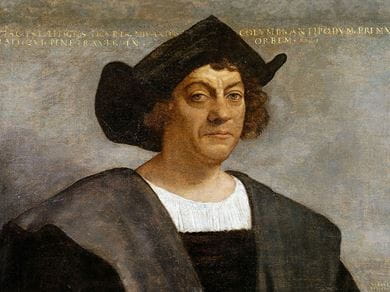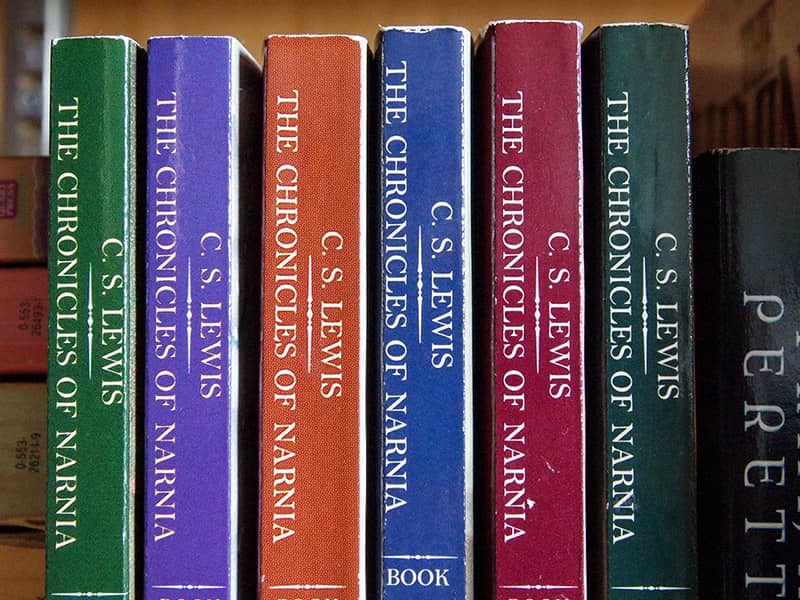
- Faith: Judaism
- Career: Explorer
- Birthday: October 31, 1451
- Date of Death: May 20, 1506
Christopher Columbus was an Italian explorer and navigator. In 1492, he sailed across the Atlantic Ocean from Spain in the Santa Maria, with the Pinta and the Niña ships alongside, hoping to find a new route to Asia. Instead, he and his crew landed on an island in present-day Bahamas—claiming it for Spain and mistakenly “discovering” the Americas.
Christopher Columbus was born in 1451 in the bustling port city of Genoa, Italy. He was the son of a wool weaver and grew up in a time when Italy was a collection of city-states. His early exposure to the sea, particularly as a young apprentice to his father, sparked a lifelong fascination with maritime exploration. Genoa, being a crucial center for trade, also exposed Columbus to various cultures, languages, and ideas, shaping his ambitions.
Though the details of his early life remain somewhat murky, Columbus took to the sea as a teenager, participating in trade voyages across the Mediterranean and possibly even as far as England and Iceland. These experiences undoubtedly fueled his desire for exploration.
In the late 15th century, European nations were fervently seeking alternative routes to Asia to tap into the lucrative spice trade. Traditional overland routes through the Middle East and Central Asia were dangerous, and the Ottomans had gained control over many of these paths, making them even less accessible. Columbus developed a radical theory that instead of sailing east around Africa, a shorter route to Asia could be found by sailing west across the Atlantic Ocean.
Columbus first approached Portugal's King John II for support, but his proposal was rejected. Undeterred, Columbus turned to the Spanish monarchy, specifically Queen Isabella I of Castile and King Ferdinand II of Aragon. After several years of negotiations, in 1492, Columbus finally received their backing. Spain, eager to gain a competitive edge over Portugal in the race for exploration and trade, saw potential in his bold vision.
On August 3, 1492, Columbus set sail from the Spanish port of Palos de la Frontera with three ships: the Niña, the Pinta, and the Santa María. After a challenging journey across uncharted waters, Columbus and his crew reached the Caribbean islands on October 12, 1492, making landfall in what is now the Bahamas.
Believing he had found islands off the coast of Asia, Columbus referred to the indigenous peoples he encountered as "Indians." This misconception would persist throughout his subsequent voyages, even though he never set foot on the mainland of Asia.
Over the next decade, Columbus embarked on three more voyages, exploring various parts of the Caribbean, including modern-day Cuba, Hispaniola, and the coast of Central and South America. While his initial mission was to find a direct route to Asia, he inadvertently opened up the Americas to European colonization. Columbus’s voyages were pivotal in establishing Spain’s dominance in the New World and laid the foundation for centuries of exploration and conquest.
While Columbus is often celebrated as a brave and visionary explorer, his legacy is not without controversy. His treatment of the indigenous peoples he encountered has sparked heated debates. Many historical accounts describe how Columbus and his crew enslaved and mistreated native populations, setting a precedent for the European colonization that followed. For some, Columbus is a symbol of European imperialism and the beginning of the exploitation of the Americas’ native peoples.
Additionally, the question of whether Columbus was aware he had not reached Asia but instead found a previously unknown continent has been a topic of debate among historians. Columbus steadfastly maintained he had reached Asia throughout his life, but subsequent explorers, such as Amerigo Vespucci, would correctly identify the lands as part of a "New World."
Despite his monumental discoveries, Columbus’s later years were marked by disappointment and disillusionment. After his fourth and final voyage in 1504, he returned to Spain in poor health and was stripped of many of the titles and privileges he had been granted by the Spanish Crown. His reputation had suffered due to accusations of mismanagement and cruelty during his time as governor of Hispaniola.
Columbus spent his final years petitioning the Spanish court to restore his titles and wealth, but he died on May 20, 1506, without regaining his former status. He was buried in Valladolid, Spain, though his remains were later moved to Seville and then to the Dominican Republic before being returned to Seville.
Christopher Columbus' Religious Beliefs
A particularly intriguing facet of Columbus’s life, which has only come to light recently, involves his religious affiliation. Traditionally, Columbus has been thought of as a devout Catholic, in line with the majority of Spain’s population at the time. The Catholic faith played a central role in Spanish society, especially during the reign of Ferdinand and Isabella, who were instrumental in the Catholic Reconquista and the expulsion of Muslims and Jews from Spain. However, a new DNA study on the 500-year-old remains of Christopher Columbus has found that the controversial explorer was actually a Sephardic Jew from western Europe.
Sephardic Jews, who lived in Spain and Portugal, faced intense persecution during the late 15th century. In 1492, the same year Columbus set sail on his first voyage, the Spanish monarchs issued the Alhambra Decree, which forced Jews to either convert to Christianity or face expulsion from Spain. Many Jews who remained chose to outwardly convert to Catholicism while secretly maintaining their Jewish faith, becoming what are known as "conversos."
Back to the Celebrity Faith Database








